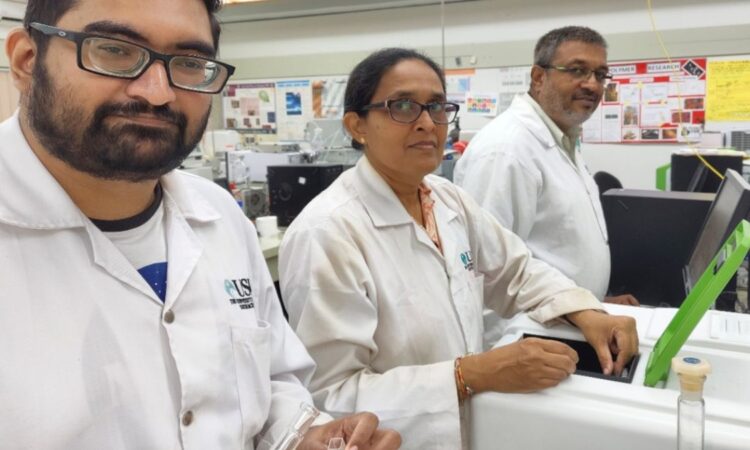In a groundbreaking leap for sustainable science and Pacific-led innovation, researchers at The University of the South Pacific (USP) have unveiled a revolutionary edible and biodegradable food coating made from cassava starch. Spearheaded by Associate Professor David Rohindra and his research team from USP’s Discipline of Chemistry, this innovation is poised to transform global food packaging and preservation practices.
The newly developed cassava-based coating is designed to extend the shelf life of tropical fruits like mangoes by accelerating the drying process and deterring fruit fly infestation. Infused with agar, glycerol, and clove essential oil, the coating not only speeds up dehydration through osmosis but also prevents fruit flies from laying eggs – tackling a major challenge in tropical agriculture.
Cassava is a readily available resource in the Pacific, and its starch has excellent film-forming properties.
Associate Professor Rohindra
By modifying it with natural additives, we’ve created a safe, edible, and environmentally friendly alternative to plastic packaging.
This innovation builds on Rohindra’s earlier research, which demonstrated the effectiveness of cassava starch coatings in preserving eggs by reducing microbial growth and moisture loss. The success of that study laid the foundation for this latest advancement, now published in Sustainable Food Technology (2025), under the title: “Development of edible food coating using cassava starch/agar blends infused with clove oil for the preservation of mangoes.”
With global demand for sustainable packaging solutions on the rise, this cassava-based technology presents a significant economic opportunity for Fiji. If scaled for commercial production, the country could become a leading exporter of biodegradable food wraps, supplying eco-conscious markets across Asia, Europe, and the Americas.
This is more than a scientific achievement, it’s a catalyst for economic growth and environmental stewardship.
We’re looking at new jobs, increased exports, and a chance for Fiji to lead the world in green innovation.
Rohindra emphasized.
As nations grapple with the dual crises of plastic pollution and food waste, Fiji’s cassava-powered solution offers a compelling model for sustainable development. By harnessing indigenous resources and scientific expertise, this innovation proves that small island nations can drive global change. With the right investment and policy support, this edible wrapper could soon be found protecting your produce and the planet.

